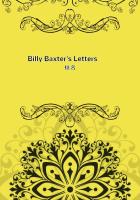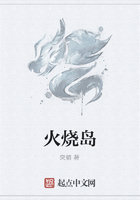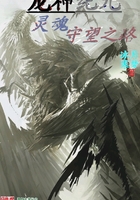"In society, the incessant appearance of machinery is the antithesis, the inverse formula of the division of labor: it is the protest of the industrial genius against fractional and homical labor. What, actually, is a machine? A way of uniting different portions of labor which had been separated by the division of labor. Every machine can be defined as a summary of several operations.... Thus, through the machine there will be a restoration of the worker.... machinery, which in political economy places itself in contradiction to the division of labor, represents synthesis, which in the human mind is opposed to analysis.... Division merely separated the different parts of labor, letting each one devote himself to the speciality which most suited him; the workshop groups the workers according to the relation of each part to the whole.... It introduces the principle of authority in labor.... But this is not all; the machine or the workshop, after degrading the worker by giving him a master, completes his abasement by making him sink from the rank of artisan to that of common laborer.... The period we are going through ar the moment, that of machinery, is distinguished by a special characteristic, the wage worker. The wage worker is subsequent to the division of labor and to exchange."[I 135, 136, 161]
Just a simple remark to M. Proudhon. The separation of the different parts of labor, leaving to each one the opportunity of devoting himself to the speciality best suited to him -- a separation which M. Proudhon dates from the beginning of the world -- exists only in modern industry under the rule of competition.
M. Proudhon goes on to give us a most "interesting genealogy", to show how the workshop arose from the division of labor and the wage worker from the workshop.
He supposes a man who "noticed that by dividing up production into its different parts and having each one performed by a separate worker", the forces of production would be multiplied.
This man, "grasping the thread of this idea, tells himself that, by forming a permanent group of workers selected for the special purpose he sets himself, he will obtain a more sustained production, etc." [I 161]
This man makes a proposal to other men, to make them grasp his idea and the thread of his idea.
This man, at the beginning of industry, deals on terms of equality with his companions who later becomes his workmen.
"One realizes, in fact, that this original equality had rapidly to disappear in view of the advantageous position of the master and the dependence of the wage-earner." [I 163]
That is another example of M. Proudhon's historical and descriptive method.
Let us now examine, from the historical and economic point of view, whether the workshop of the machine really introduced the principle of authority in society subsequently to the division of labor; whether it rehabilitated the worker on the one hand, while submitting him to authority on the other; whether the machine is the recomposition of divided labor, the synthesis of labor as opposed to its analysis.
Society as a whole has this in common with the interior of a workshop, that it too has its division of labor. If one took as a model the division of labor in a modern workshop, in order to apply it to a whole society, the society best organized for the production of wealth would undoubtedly be that which had a single chief employer, distributing tasks to different members of the community according to a previously fixed rule. But this is by no means the case. While inside the modern workshop the division of labor is meticulously regulated by the authority of the employer, modern society has no other rule, no other authority for the distribution of labor than free competition.
Under the patriarchal system, under the caste system, under the feudal and corporative system, there was division of labor in the whole of society according to fixed rules. Were these rules established by a legislator? No. Originally born of the conditions of material production, they were raised to the status of laws only much later. In this way, these different forms of the division of labor became so many bases of social organization. As for the division in the workshop, it was very little developed in all these forms of society.
It can even be laid down as a general rule that the less authority presides over the division of labor inside society, the more the division of labor develops inside the workshop, and the more it is subjected there to the authority of a single person. Thus authority in the workshop and authority in society, in relation to the division of labor, are in inverse ratio to each other.
The question now is what kind of workshop it is in which the occupations are very much separated, where each worker's task is reduced to a very simple operation, and where the authority, capital, groups and directs the work. How was this workshop brought into existence? In order to answer this question, we shall have to examine how manufacturing industry, properly so-called, has developed. I am speaking here of that industry which is not yet industry, with its machinery, but which is already no longer the industry of the artisans of the Middle Ages, nor domestic industry. We shall not go into great detail: we shall merely give a few main points to show that history is not to be made with formulas.
One of the most indispensable conditions for the formation of manufacturing industry was the accumulation of capital, facilitated by the discovery of America and the import of its precious metals.
It is sufficiently proved that the increase in the means of exchange resulted in the depreciation of wages and land rents, on the one hand, and the growth of industrial profits on the other. In other words: to the extent that the propertied class and the working class, the feudal lords and the people, sank, to that extent the capitalist class, the bourgeoisie, rose.















